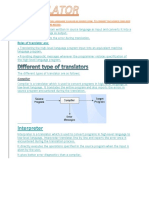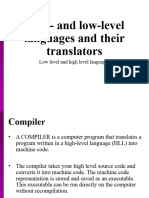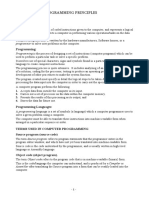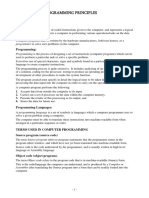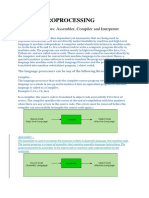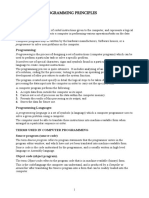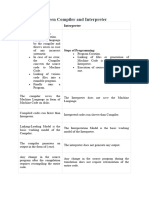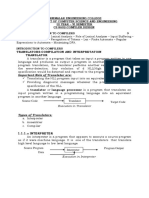0% found this document useful (0 votes)
27 views4 pagesLecture 4.compilers and Interpreters
A compiler is a program that translates high-level programming code into machine code, requiring compliance with syntax rules and unable to fix errors. In contrast, an interpreter converts code one statement at a time during execution, resulting in easier debugging but slower overall execution. Both serve the purpose of converting high-level languages to machine code, with compilers generating an executable file and interpreters being more memory efficient.
Uploaded by
phillipgonyora031Copyright
© © All Rights Reserved
We take content rights seriously. If you suspect this is your content, claim it here.
Available Formats
Download as PPTX, PDF, TXT or read online on Scribd
0% found this document useful (0 votes)
27 views4 pagesLecture 4.compilers and Interpreters
A compiler is a program that translates high-level programming code into machine code, requiring compliance with syntax rules and unable to fix errors. In contrast, an interpreter converts code one statement at a time during execution, resulting in easier debugging but slower overall execution. Both serve the purpose of converting high-level languages to machine code, with compilers generating an executable file and interpreters being more memory efficient.
Uploaded by
phillipgonyora031Copyright
© © All Rights Reserved
We take content rights seriously. If you suspect this is your content, claim it here.
Available Formats
Download as PPTX, PDF, TXT or read online on Scribd
/ 4





























